When Ambrose was twelve years old, he began to take female hormones. At eighteen, he prepared to undergo a vaginoplasty, the surgical reconstruction of the vagina. Suffering from depression, Ambrose contemplated suicide. “I knew that I wasn’t a girl,” he later told a reporter. The following year, Ambrose obtained his medical records, and discovered what had happened to him as an infant: “I was sterilized at birth—and no one ever told me.” Ambrose was born with a condition that inhibited testosterone production; after adolescence, he began to take testosterone shots, and had surgery to remove his breasts.
Approximately one in every fifteen hundred to two thousand children born each year is diagnosed with a disorder or difference of sexual development. (Accurate figures are difficult to obtain, because it is difficult to measure degrees of physical and hormonal difference, and because many, like Ambrose, may not know they were diagnosed as such.) Some advocates believe the numbers are even higher: by the broadest measurement, one out of every hundred children has some subtle form of “sex anatomy variation.” Parents whose newborn babies have indeterminate genitalia typically follow what has long been the standard medical advice, to have doctors perform surgery to help the child conform to one or the other fixed gender category. Traditionally, the choice has been which gender to assign to the baby, not whether to put a baby through invasive surgery at all.
Today, we pride ourselves on letting children defy antiquated gender stereotypes. Boys can now have dolls, and girls Erector sets; we agree that the salient differences between genders are social constructs, and give little leeway to those who insinuate that, say, women have less aptitude for science and engineering. Yet, even as many fight against the persistence of rigid gender norms, we still separate the sexes as soon as kids are old enough to be potty-trained; when gym class arrives and locker rooms are needed, we push the boys and girls even farther apart. For all the progress that has followed from the enlightened credo that gender is but a construct, we keep hesitating at the notion that sex, too, does not obey strict binaries. Some people aren’t just pushing away from prototypes of sinewy maleness or delicate femaleness; they were born with bodies that don’t conform to the “M” or the “F” boxes on the census form. There are children, in other words, whose genes have not defined for them which bathroom to use, or where to change for gym class; babies can be born with XX chromosomes in certain cells, and XY chromosomes in others—mosaic genetics.
Attention to the complexities of biological variation is growing. Two weeks ago, the New Jersey legislature passed a bill that would grant citizens the right to change the gender on their birth certificate without having gender-reassignment surgery. The bill “revises the requirements for obtaining an amended certificate of birth due to a change in sex,” which can now be done through an official form indicating “that the person has undergone clinically appropriate treatment for the purpose of gender transition, based on contemporary medical standards, or that the person has an intersex condition.”
In early November, Germany—which, in part to combat the legacy of the Third Reich, has deliberately asserted the rights of marginalized groups—became the first country in Europe to allow a third gender designation: X, for indeterminate or intersex. (Australia introduced a similar measure in July.) If a baby is born with ambiguous sex characteristics, it won’t be forced to undergo a normalizing operation just so that nurses can tick “male” or “female” on its birth certificate. The legal acknowledgment of a third category should mean that fewer doctors urge parents to have sex-assignment surgery performed on their newborns. Fewer children should suffer the plight described by one person quoted in a report that helped lead to the new law, a German born with ambiguous genitalia in 1965, who spoke of being a “patchwork created by doctors, bruised and scarred.”
The law has angered some intersex-rights groups, who object to its stipulation that a child “assigned to neither the female nor the male sex … is to be entered into the register of births without such a specification.” The new designation, they argue, still presents a requirement rather than a choice; they want the determination to be a personal decision, not the result of doctors making judgments on the basis of observed physical characteristics.
These advocates feel that the law will do little to combat stigma, and may, in fact, inspire parents to push harder to avoid a formal intersex designation for their children. The law doesn’t solve the problem, in their words, of “the externally determined gender assignment, the practice of sexed standardization and mutilation, as well as medical authority of definition on sex.” The only real solution, some suggest, would be to ban gender-assignment surgeries for infants, which would provide intersex persons with the opportunity to decide, later in life, whether to identify with one gender, or neither.
While certain religious groups argue that sexuality is a choice (and certain sexual lifestyles are therefore sinful), no one makes that argument about biology, which might suggest a certain logic to granting rights to genetic difference before sexual preference. A report filed to the European Commission in June, 2011, implies that the case of intersex persons is more clear-cut than that of gay or transgender individuals: “Intersex people differ from trans people as their status is not gender related but instead relates to their biological makeup (genetic, hormonal and physical features).” By this token, Germany’s measure is a conservative one, addressed to questions of biology rather than identity, and not necessarily linked to the L.G.B.T. movement. Same-sex marriage is not legal in Germany (although civil unions are recognized), and the ruling on a third gender category does not clarify how the intersex designation might affect marriage laws.
While broader cultural developments have begun to clear space for the expression of formerly unorthodox sexualities and gender identities, those who would have once been called hermaphrodites remain even more marginal than transgender persons. But the order in which old taboos dissolve varies without much logic: the movement for gay rights and same-sex marriage has helped the admittedly slower recognition of transgender issues, while intersex rights have sometimes been granted in statutes, like the one in New Jersey, that enhance transgender rights. On December 17th, the Netherlands approved a law that will allow transgender people to change their gender on identity papers without undergoing sex-reassignment surgery, amending an earlier statute that did not grant individuals the autonomy to define their own gender identity. The Dutch law does not include a provision for intersex rights; in November, Maya Posch, a Dutch woman who is intersex and has fought for a decade to have her status acknowledged, announced that she planned to move to Germany. A lesbian in Berlin who wanted to marry might make the opposite move: the Netherlands was the first country in the world to legalize same-sex marriage.
Whatever the sequence, diverse expressions of gender and sexuality are becoming mainstream. In March, Margaret Talbot wrote in the magazine about Skylar, a transgender teen-ager who grew up with doting parents in an affluent suburb, a milieu vastly more open to his gender identity and decision to undergo surgery than would have been imaginable decades ago. “Like many ‘trans’ people of his generation,” Talbot wrote, “he is comfortable with some gender ambiguity, and doesn’t feel the need to be, as he puts it, a ‘macho bro.’ ” Talbot’s story about Skylar is about transgender identity being far less of a story than it used to be.
In 2000, when Jim Ambrose was twenty-four and still living as Kristi, he was one of the subjects of a short documentary, “XXXY,” by Porter Gale and Laleh Soomekh. Ambrose was a bike messenger then, and told the filmmakers that riding all day was an inhumane ordeal: “Vaginoplasty is so fucking disgusting and so barbaric, it’s starting to come out—the inner part of the intestine is starting to come out, stick out.” The film includes an interview with Ambrose’s parents, who seem quite helpless. His father recalls that doctors didn’t present much of a choice: they said—without malice, he notes—that they could simply correct the problem. And that was that. When their child found out about the surgery, Ambrose’s father says, “we tried to explain that we thought this was the best thing, with the doctors. But she was not very happy at all.” His mother adds, “She was real angry.”
Ambrose no longer sounds angry at his parents. In the film, he speaks about forgiveness; more recently, he wrote that parents “were often led to believe they were doing the best thing for the child.”
“XXXY” also contains a startlingly personal interview with Howard Devore, a clinical psychologist who is intersex. Devore speaks candidly about the emotional devastation of growing up as someone doctors consider a freak, someone the medical establishment tried to “repair” at birth. He has spoken with thousands of intersex people around the world. “I don’t know one intersex individual who is happy with the treatment they have received from the physicians they have consulted with over the years—not one,” Devore tells the filmmakers. “One’s sexual feeling, ability to feel like they can couple with another human being, is literally destroyed by some doctor’s idea of how genitals are supposed to look.”
In childhood, as soon as he realized that other kids spent their summer vacations at Yellowstone, Devore says, “I learned to lie. I couldn’t tell other kids I went to the hospital and had my genitals chopped up again.” He lived with a plastic tube attached to his genitals so that he could stand to pee; his urinary opening came at the base, not the tip, of his penis. Cosmetic surgery should not be performed on infants, he insists. “If they choose, later, to have a surgery—if it’s their choice. If I’d had the chance to do that, I wouldn’t have gone quite so horrible an adolescence, quite so difficult an identify formation as an adult.”
Today, Jim Ambrose works at the Interface Project, a nonprofit sponsored by Advocates for Informed Choice, a legal group that champions people with intersex conditions. Ambrose is a fellow of remarkable good humor, on display in a video introduction where he hails the effects of testosterone, “which makes my voice deep, and gives me this hair on my face, and”—he points—”is killing my hairline.”
“I have chest hair; I have much bigger muscles than I did before, because before,” he takes a beat, “I was living as female. And I was living as female because when I was born, I was born with a very small penis, and internal testes, and XY chromosomes. And my parents were very upset, my doctor was very upset, and the only information that they had out there to treat a problem like me was to remove my penis, and take out my reproductive organs, because they didn’t like the way it looked.”
“Remember: your kid is going to want his genitals. Your kid is going to want her genitals,” Ambrose tells the camera. “My mother regrets having my penis cut off and my testes cut out so, so much.”
Watching Ambrose’s testimonial today, it galls to think of this person in 2000, when he went by Kristi, saying that these surgeries would stop within his lifetime. In “XXXY,” he said it like a pledge, and today it’s becoming true: little by little, doctors and parents—and even politicians, from New Jersey to Germany to Australia—are questioning, delaying, and cancelling cosmetic genital and gender-assignment surgeries.
“I’ll get to talk to little hermaphrodites running around, I’ll get to hold them in my arms,” Ambrose says, choking up, in “XXXY.” “I’ll get to tell them—I’ll get to tell their parents how wonderful their children are.”
Photograph by Anastasia Taylor-Lind/VII.

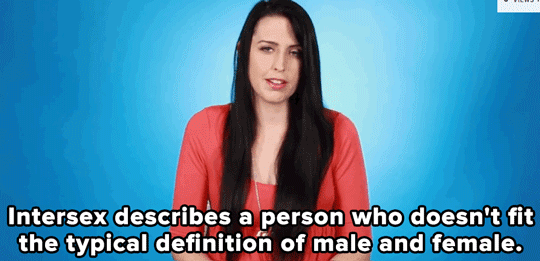
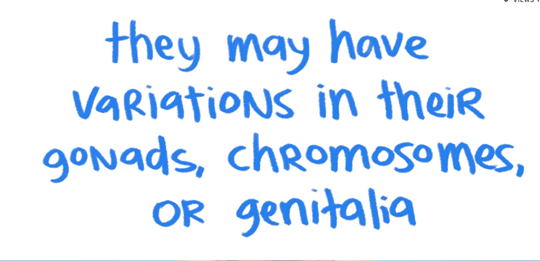

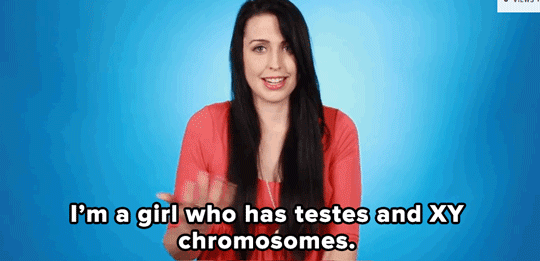
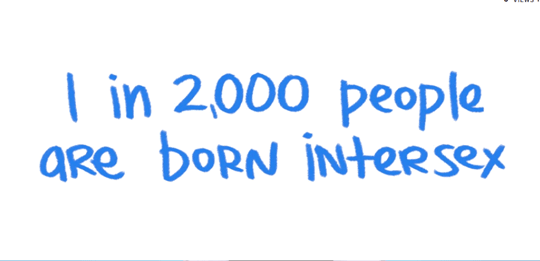

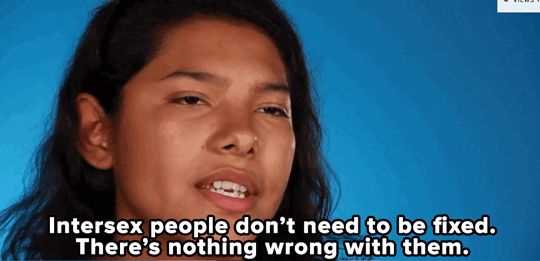
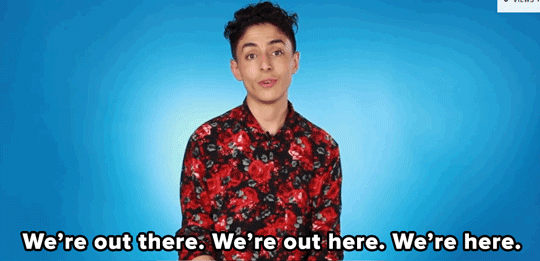




 Jim Ambrose was born in 1976, with, he wrote last year, “genitals that frightened my parents and caregivers.” He had one X and one Y chromosome, but his sex organs were ambiguous, resembling a large clitoris or a small penis. Doctors have an easier time eliminating tissue than adding it, and so they decided to surgically remove the organ and the nearby testes. The baby was raised as a girl, named Kristi Bruce.
Jim Ambrose was born in 1976, with, he wrote last year, “genitals that frightened my parents and caregivers.” He had one X and one Y chromosome, but his sex organs were ambiguous, resembling a large clitoris or a small penis. Doctors have an easier time eliminating tissue than adding it, and so they decided to surgically remove the organ and the nearby testes. The baby was raised as a girl, named Kristi Bruce.
You must be logged in to post a comment.